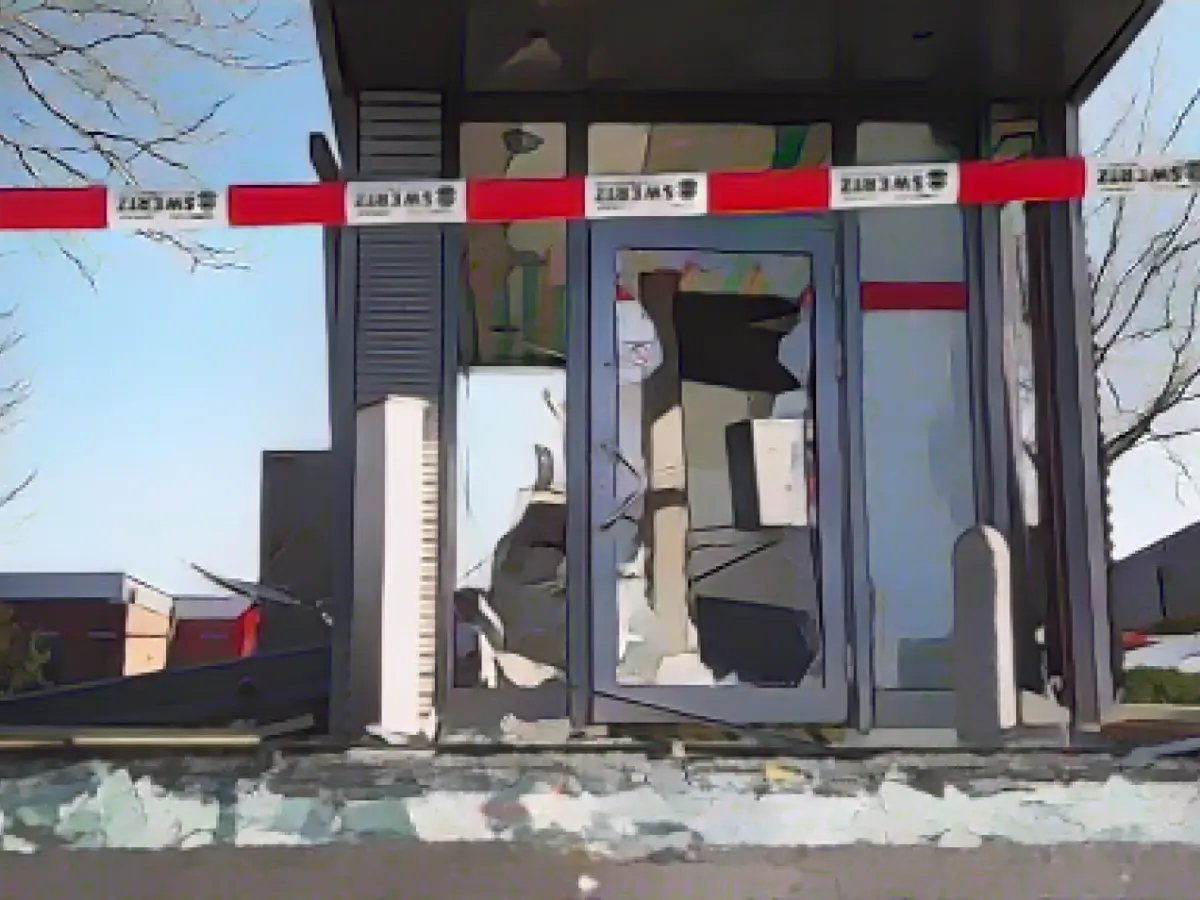Banks - 153 attacks: decline in ATM blasts in NRW
There are signs of a decline in the number of attacks on ATMs in North Rhine-Westphalia. Shortly before the end of the year, the number of attacks was 153, as reported by the NRW State Criminal Police Office in Düsseldorf on request (as of December 29). In 69 cases, the attack was only attempted. That was a share of 45 percent.
If it stays that way, this would be a decrease of 16 percent compared to the record year of 2022, when 182 ATMs were attacked. At the same time, the figure was slightly higher than in 2021, when 151 attacks were recorded.
"We can see that the measures are working. But we are not yet where we want to be," NRW Interior Minister Herbert Reul (CDU) told the German Press Agency. "The hackers are still finding their way into banks, ATMs and our money too often. We have to keep at it and make sure that these callous raids are no longer worthwhile. Every blast is a danger to life and limb."
Nationwide, the trend was mixed. According to a dpa survey, there were also signs of a decline in several other federal states, such as Lower Saxony, Bavaria and Saxony. In Schleswig-Holstein, Mecklenburg-Western Pomerania, Baden-Württemberg and Hesse, however, investigators recorded an increase before the end of the year.
According to the German Insurance Association, the cases in the previous year resulted in damage amounting to a good 110 million euros. The damage to the equipment and the buildings usually exceeded the damage caused by the stolen money. There are around 55,000 ATMs nationwide.
The police recommend that financial institutions keep the machines under lock and key at night, install fogging systems and prepare the cash in the machines so that it is dyed and glued in the event of an explosion.
In the fight against the phenomenon of blast attacks, Federal Minister of the Interior Nancy Faeser (SPD) had also spoken out in favor of equipping the machines with colored adhesive cartridges. In the Netherlands, the problem was quickly brought under control.
In the summer, the German Police Union had also called for the Netherlands to finally take the lead in the fight against the phenomenon, as they had been able to combat it quickly and successfully. The previous agreements between state criminal investigation departments, interior ministries and banks were completely inadequate.
Daniel Vollmert, senior public prosecutor in Düsseldorf, also reported that a significant reduction in the number of attacks could be observed immediately at financial institutions that used the color glue cartridges in Germany.
According to earlier information from investigators, a group of 400 to 500 men from the Dutch urban centers of Utrecht, Amsterdam and Rotterdam are behind the majority of the ATM attacks that have been solved in NRW.
They are also known as the "Audi gang" because of their preference for fast Audi getaway cars. Recently, however, series of crimes by free riders from other regions have also become known.
Read also:
- A clan member is punished here
- Traffic lawyer warns: Don't talk to the police!
- Will he be convicted as Jutta's murderer after 37 years?
- He also wanted to kill his cousin
- The LKA North Rhine-Westphalia, a part of the German Police, attributed the decline in ATM attacks in NRW to the efforts of the banks.
- Herbert Reul, the CDU's Interior Minister of North Rhine-Westphalia, expressed satisfaction with the decline but emphasized the need for continued vigilance against such criminality.
- Police in the Netherlands were able to effectively combat the issue of ATM explosions, serving as an example that other regions could follow.
- The German Police Union had urged authorities to learn from the Dutch success in addressing blast attacks, as previous measures were deemed inadequate.
- After installing colored adhesive cartridges, financial institutions in Germany reported a significant reduction in ATM attacks, according to Daniel Vollmert, a senior public prosecutor in Düsseldorf.
- The group behind the majority of unsolved ATM attacks in NRW, referred to as the "Audi gang," is primarily composed of men from the Dutch cities of Utrecht, Amsterdam, and Rotterdam.
- Bank robberies and ATM attacks have also been reported in other regions, with free riders from various areas becoming increasingly involved in the criminal activity.
Source: www.stern.de








